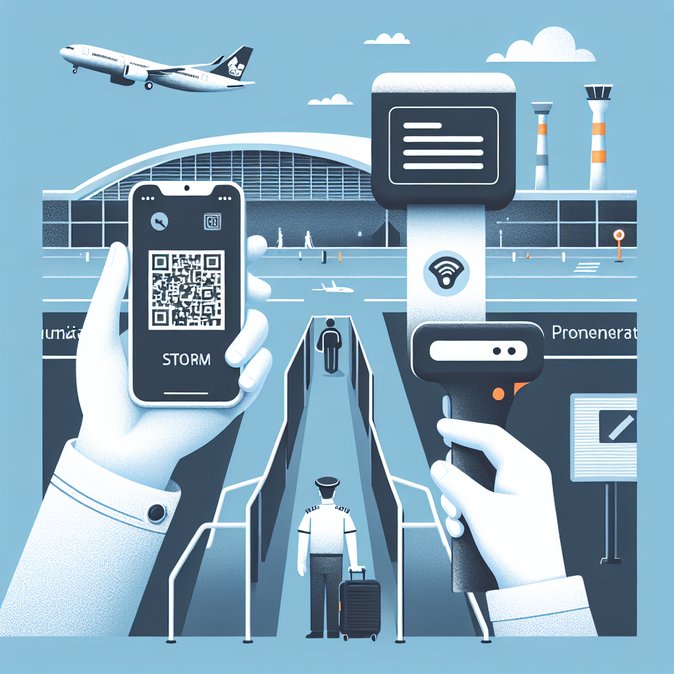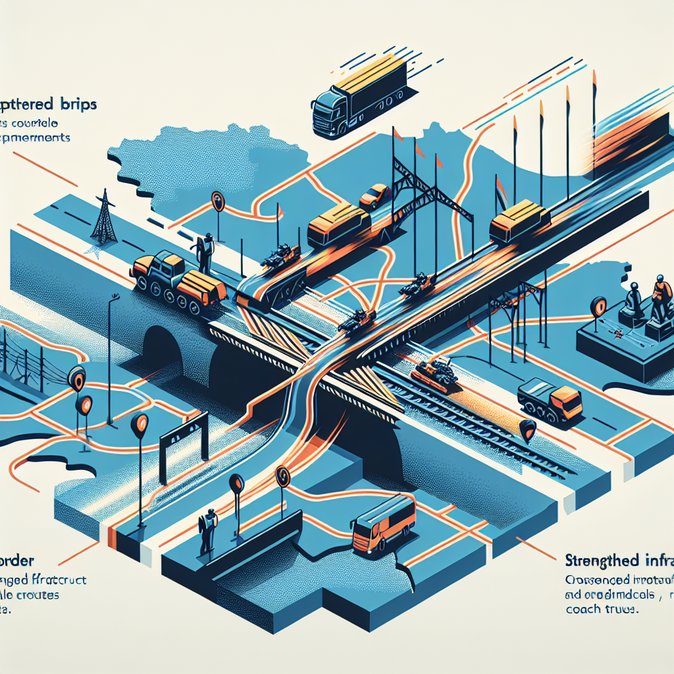
Business travellers heading to Finland could soon clear the border in less time than it takes to fetch hand luggage from an overhead locker. On 19 November the Council of the European Union adopted its negotiating mandate for the new Digital Travel Application (DTA) regulation, a cornerstone of the bloc’s post-pandemic smart-border agenda.
The DTA will allow airlines, ferry operators and individual travellers to upload passport data and live facial biometrics to a secure EU platform before departure. Border officers in Finland and the 29 other Schengen members will be able to run automated checks against security, migration-overstay and health databases. At Helsinki-Vantaa Airport, travellers would then present a QR-code on their phone to open the eGate, cutting the average inspection time for non-EU nationals from today’s 45–60 seconds to under 20 seconds, according to Finland’s Border Guard.
![EU Council Approves Digital Travel Application—Finland to Pilot Seamless QR-Code Entry in 2026]()
Finland is well placed to lead the roll-out. The country’s airports already operate the new Entry/Exit System (EES) that became operational across the EU in October 2025. Those biometric kiosks, secure network links and encryption modules can be repurposed for the DTA with only minor software tweaks. The Border Guard told Finnish media it aims to start a voluntary pilot in spring 2026 and mandate airline participation by mid-2027. Finavia, Helsinki Airport’s operator, is preparing signage and dedicated “DTA Fast Track” lanes that will let connecting passengers breeze through border control in under two minutes.
For multinational companies, the implications go beyond shorter queues. HR and travel-management systems will be able to pre-enrol frequent travellers and attach proof of ETIAS travel authorisation, work permits or A1 social-security certificates to bookings automatically. That could sharply reduce the risk of denied boarding or overstays—issues that cost Finnish employers thousands in compliance fines last year. Immigration lawyers also note that the digital wallet will give posted workers a single source of truth for remaining Schengen-area days, simplifying planning for rotational assignments.
Civil-rights groups have welcomed the regulation’s privacy safeguards: all data are encrypted end-to-end, stored for a maximum of five years and deleted automatically once legal retention periods expire. The law now moves to trilogue negotiations with the European Parliament, with final adoption expected by mid-2026. Finnish businesses that rely on short-term assignees—technology consultancies, ship-building contractors and the burgeoning battery-materials sector—are being advised to review employee-data feeds and update travel-risk policies well in advance.
The DTA will allow airlines, ferry operators and individual travellers to upload passport data and live facial biometrics to a secure EU platform before departure. Border officers in Finland and the 29 other Schengen members will be able to run automated checks against security, migration-overstay and health databases. At Helsinki-Vantaa Airport, travellers would then present a QR-code on their phone to open the eGate, cutting the average inspection time for non-EU nationals from today’s 45–60 seconds to under 20 seconds, according to Finland’s Border Guard.

Finland is well placed to lead the roll-out. The country’s airports already operate the new Entry/Exit System (EES) that became operational across the EU in October 2025. Those biometric kiosks, secure network links and encryption modules can be repurposed for the DTA with only minor software tweaks. The Border Guard told Finnish media it aims to start a voluntary pilot in spring 2026 and mandate airline participation by mid-2027. Finavia, Helsinki Airport’s operator, is preparing signage and dedicated “DTA Fast Track” lanes that will let connecting passengers breeze through border control in under two minutes.
For multinational companies, the implications go beyond shorter queues. HR and travel-management systems will be able to pre-enrol frequent travellers and attach proof of ETIAS travel authorisation, work permits or A1 social-security certificates to bookings automatically. That could sharply reduce the risk of denied boarding or overstays—issues that cost Finnish employers thousands in compliance fines last year. Immigration lawyers also note that the digital wallet will give posted workers a single source of truth for remaining Schengen-area days, simplifying planning for rotational assignments.
Civil-rights groups have welcomed the regulation’s privacy safeguards: all data are encrypted end-to-end, stored for a maximum of five years and deleted automatically once legal retention periods expire. The law now moves to trilogue negotiations with the European Parliament, with final adoption expected by mid-2026. Finnish businesses that rely on short-term assignees—technology consultancies, ship-building contractors and the burgeoning battery-materials sector—are being advised to review employee-data feeds and update travel-risk policies well in advance.


